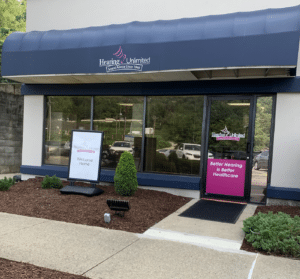Hearing FAQs
What is an audiologist?
Audiologists are hearing professionals (sometimes called hearing doctors) who have undergone additional training and education to treat hearing loss, balance problems, and other hearing disorders. Audiologists hold a doctorate of audiology degree and are able to diagnose and treat hearing loss through the use of hearing aids.
What is the safest way to clean ears?
You should never use cotton swabs to clean your ears. Cotton swabs can push earwax further into the ear canal, causing a blockage. If your ears are bothering you due to excessive earwax, contact our audiology center for an appointment. One of our specialists can safely and effectively remove earwax so you can hear clearly again.
What is ototoxicity?
Ototoxicity is drug or chemical damage to the cochlea of the inner ear which is responsible for hearing. Some medications are ototoxic and may cause harm to your hearing. It’s important to consult with your physician about any medications you take to discover if the side effects are hearing loss. Ototoxic medications include certain antibiotics, chemotherapy drugs, and non-steroidal anti-inflammatory drugs.
What are the causes of sensorineural hearing loss?
Sensorineural hearing loss is the most common type of hearing loss. Common causes include:
- Age
- Genetics
- Loud noise exposure
- Ototoxic medications
- Underlying health conditions
Do I need two hearing aids if I only have hearing loss in one ear?
Although you may think you have one “good” ear and one “bad” ear, the only way to be sure is to have your hearing tested. Oftentimes, the results of the hearing test will indicate that both ears could be helped by hearing aids. If you do indeed have one ear that has hearing loss worse than the other ear, it is still best to wear two hearing aids so you can hear all of the sounds around you.
How often should I clean my hearing aids?
You should clean your hearing aids every day, every time you take them out of your ears. Using a hearing aid brush or a dry, soft cloth, simply wipe your hearing aids to remove any dust, dirt, or other small debris. It’s important to perform regular hearing aid maintenance so your devices last you for many years.





